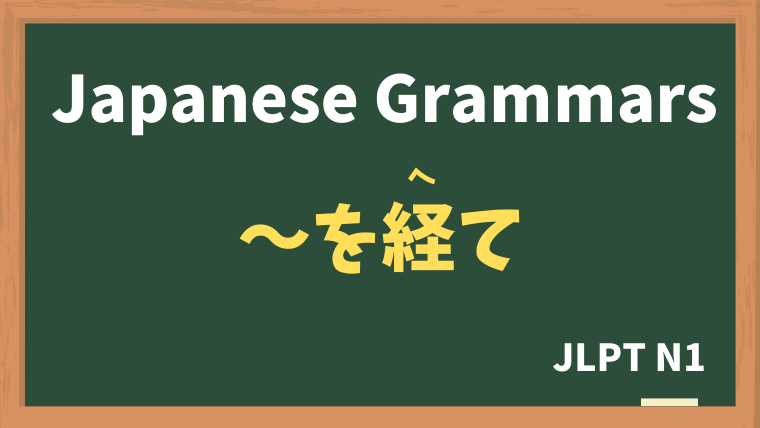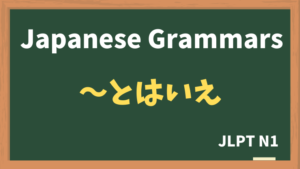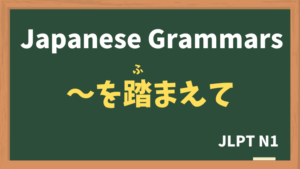
Explanation:〜を経て
fa-check-circleMeaning
① 〜を経験して:after experiencing 〜
② 〜を通って:through 〜
③(時間)がたったあとで : after (time) has passed
Used to describe the process of passing through or going through something, whether it be an experience, time, or stages, before reaching a particular result or outcome. It conveys a sense of progress or transition over time or through certain steps. In English, it can be translated as "through," "via," or "after going through."
fa-check-circleForm
N + を経て
Nは「時間」、「場所」、「経験」に関係のある単語が来ます。
fa-check-circlePoints
- Process/Stages: It emphasizes that something occurred after going through a certain process or stage.
- Time Period or Experience: Often used with events, periods, or experiences to highlight the steps that led to the current state or result.
- Formal Usage: It’s commonly used in formal speech and writing, often to describe significant experiences, transitions, or processes.
fa-check-circleJLPT Level
N1
Sample sentenes
1. 〜を経験して
日本留学を経て、日本語はもちろん、日本の文化や習慣についても学ぶことができました。
After studying in Japan, I was able to learn not only Japanese but also Japanese culture and customs.
色々な失敗を経て、人は成長するものです。
People grow through various failures.
2. 〜を通って
日本からスペインへの直行便がないので、イギリスを経てスペインへ行きます。
Since there is no direct flight from Japan to Spain, I will go to Spain via England.
韓国を経てフィリピンへ行くつもりです。
I am planning to go to the Philippines via Korea.
3. (時間)がたったあとで
トムさんとアンナさんは3年の交際を経て、結婚しました。
Tom and Anna got married after dating for three years.
3年を経て、やっと新商品が完成した。
It took three years, but the new product was finally completed.
Vocabulary
| Japanese |
English | |
| 習慣 | しゅうかん | custom |
| 直行便 | ちょっこうびん | direct flight |






